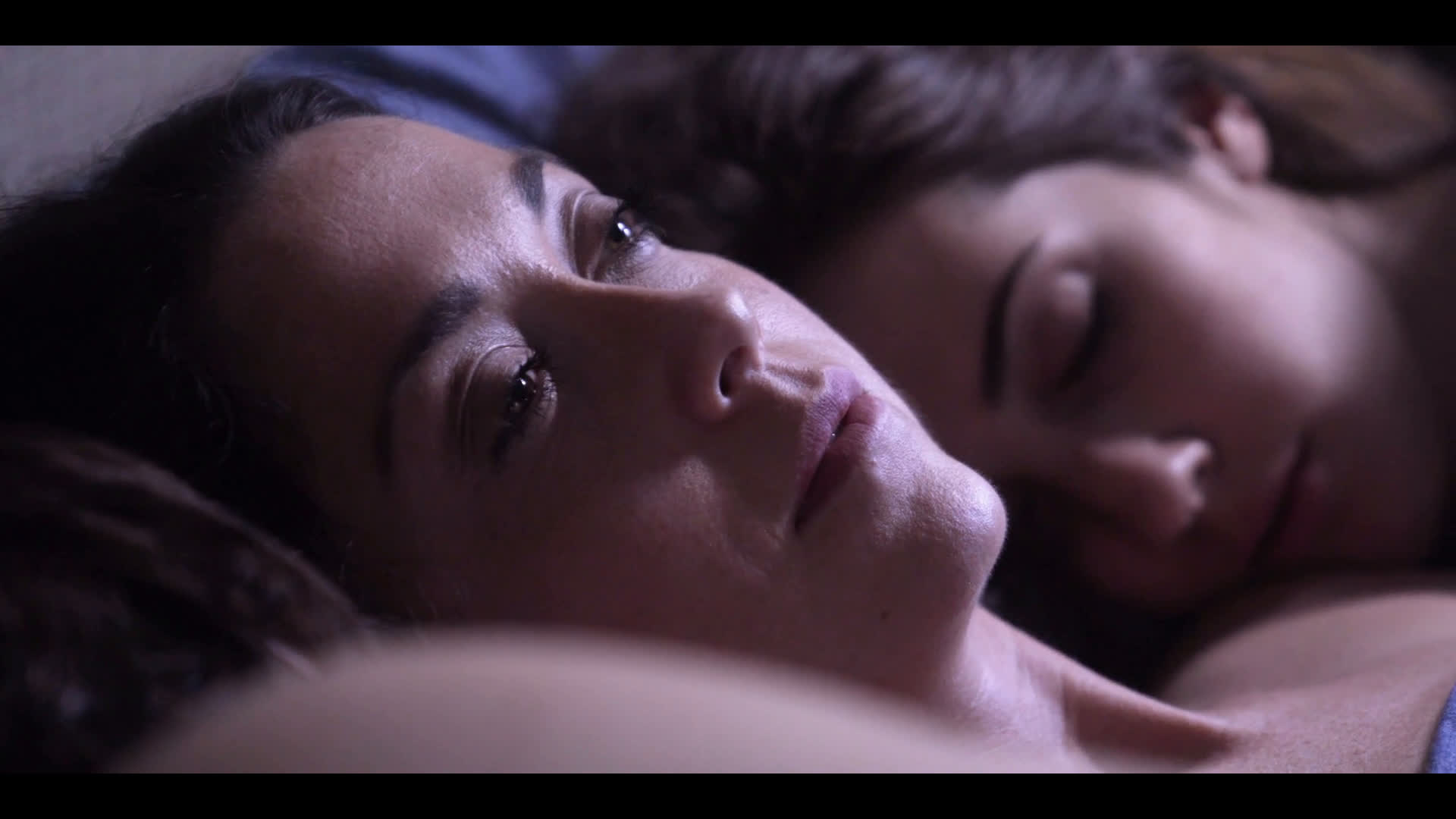East of Wall
by George Wolf
With a narrative structure that recalls The Florida Project and Nomandland among a few others, East of Wall immerses you in a way of life among the actual people who are living it. Buoyed by two veteran acting talents, a fiercely strong woman and her extended family become a testament to will and commitment.
In the Badlands of South Dakota, Tabitha Zimiga (as herself) runs a broken down ranch where she trains and sells horses, earning a reputation as a nearly unmatched horse whisperer. With tattoos, piercings, a half-shaven head and a take-no-shit attitude, Zimiga cuts an imposing figure. And after the death of her husband John a year ago, Tabitha’s intimidating nature helps her deal with a rowdy mother (Jennifer Ehle) and a houseful of seven teenagers – only some of which are her own.
One of those, Porshia Zimiga (as herself) is a barrel racing champ who helps her mother out come auction time, but the horses just aren’t bringing the prices they should be.
Big time rancher Roy Waters (the always welcome Scott McNairy) offers a way out: he’ll buy all of Tabitha’s 3,000 acres, with a promise that the family can stay. Maybe so, but their birthrite will be gone, and Tabitha has little problem sizing Roy up while she weighs his offer.
This is the feature debut for writer/director Kate Beecroft, and it’s crafted with loving tenacity that echoes the hardscrabble nature of these family bonds. The camerawork is intimate and assured, while Austin Shelton’s cinematography delivers beauty of horses and majesty of land in equal measure.
East of Wall is the type of film that should be sought out by those complaining about sequels and superheroes. It’s a sobering, no-frills story of strong women carving out a life of meaning and a place to call their own, told with an honesty that makes it hard to look away.


